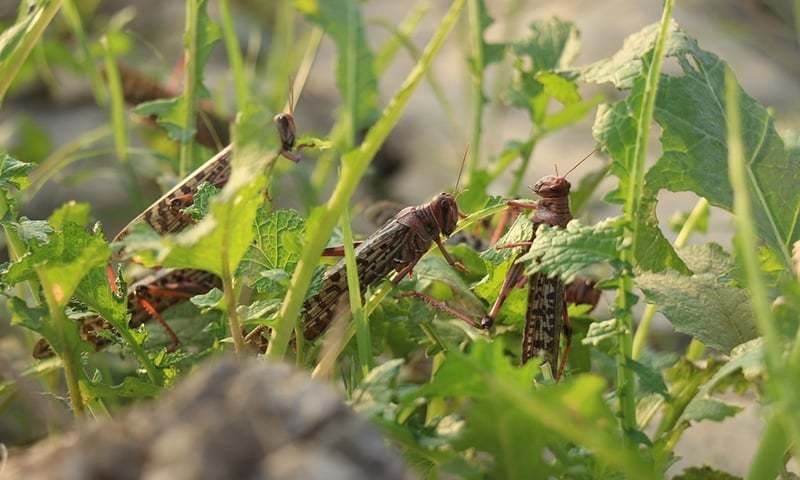ISLAMABAD: Raising concerns over unseasonal rains in March and Arpil in the country, the UN Food and Agriculture Organisation (FAO) in its report said desert locust outbreak will worsen and eventually harm wheat crop in Pakistan.
The country has been facing locust infestation since the beginning of 2019.
Abundant rains during March and April has improved vegetation conditions which along with warm temperatures in April could support locust breeding. An increase in locust numbers may damage late-planted wheat crops still to be harvested, the report said.
Overall, 2020 wheat production is expected to remain close to the five-year average, but below previous expectations of a bumper output, FAO said in an analysis report on Pakistan.
Harvesting of the 2020 Rabi wheat crop started in March in Sindh, with the bulk to be gathered between April and mid-June. The 2020 wheat crop season started on time last October and progressed well until February.
During this period, favourable weather conditions, ample irrigation water supplies and adequate availability of agricultural inputs, such as fertilisers, chemicals and labour, allowed farmers to plan an above-average area and fostered expectations for bumper yields.
In March and April, unseasonal heavy rains and localised hail over areas of the main wheat-producing province of Punjab, delayed harvesting operations and caused localised damage to standing crops, the report said.
The 2019 cropping season was finalised in November last year. The aggregate cereal output, including wheat, paddy rice and maize is estimated at a record level of 43.6 million tonnes. Cereal exports consist mostly of rice and wheat. In calendar year 2020, rice exports forecast is at 4.8m tonnes, almost 20 per cent above the five-year average, reflecting adequate availabilities from the 2019 record output.
The risk posed by the Covid-19 pandemic, both through the negative impacts associated with a reduction in economic activities and the potential adverse effects on the food supply chain is an additional concern for food security in the country, the FAO notes.
Recent price increases of wheat grain and flour as well as other important food items, such as chicken meat, milk and onions, are affecting households’ access to food.
According to the report, overall, food security conditions in the country are generally stable reflecting adequate cereal supplies from the record 2019 production. However, concerns about food insecurity persist in some parts of the country, particularly in western and southwestern areas of Balochistan province, in the arid southeastern and western areas of Sindh and newly merged areas of Khyber-Pakhtunkhwa.
Published in Dawn, April 19th, 2020













































